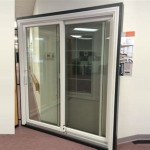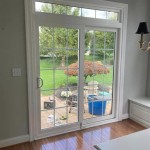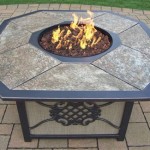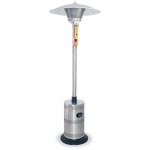Troubleshooting Patio Heater Issues
Patio heaters are a welcome addition to any outdoor space, extending the time you can enjoy your backyard well into colder seasons. However, even the best-quality heaters can sometimes malfunction. Understanding common issues and troubleshooting steps can help you get your patio heater back up and running efficiently.
1. The Heater Won’t Ignite
A heater that won’t ignite is a common problem, and there are several possible causes. The first step is to check the fuel source. If you are using a propane or natural gas heater, ensure the tank or line is full and the valve is open. Depending on your heater's model, you may need to manually ignite the pilot light or spark the igniter.
If the fuel source is adequate, check the igniter. Many patio heaters use piezoelectric igniters, which generate a spark when pressed. If the igniter isn't sparking, it may be dirty or malfunctioning. Clean the igniter with a wire brush or replace it if it's damaged. If you are using a battery-powered igniter, ensure the batteries are fresh and properly installed.
If the igniter is working, inspect the burner tube for obstructions. A clogged burner tube can prevent gas from flowing freely, preventing ignition. Use a wire brush or compressed air to clear any debris from the tube.
2. The Heater Won’t Stay Lit
A heater that won’t stay lit could indicate a problem with the fuel supply, the flame sensor, or the air intake. Ensure the fuel valve is open fully and that the fuel tank is not empty. If the fuel supply seems adequate, check the flame sensor, which is typically a small metal rod located near the burner. The sensor detects the flame and sends a signal to keep the gas flowing. If the sensor is dirty or damaged, it may not detect the flame properly, causing the heater to shut off. Clean the sensor with a soft cloth or replace it if necessary.
Another possibility is a blocked air intake. Patio heaters need a constant supply of fresh air to operate properly. If the air intake is obstructed by debris or wind, it can cause the heater to shut off. Clear any obstructions around the air intake and ensure it is not blocked by furniture or other objects.
3. The Heater Produces Smoke or Smell
Smoke or unusual smells coming from your patio heater can be concerning, but often point to simple maintenance issues. The most common cause is a dirty burner. Over time, soot and debris can accumulate on the burner, resulting in incomplete combustion and smoke. Clean the burner with a wire brush or use a special burner cleaning solution.
Another possibility is a leaking fuel line. If you notice a strong fuel odor, carefully check the fuel lines for any cracks or leaks. Leaks should be immediately addressed by a qualified technician. Ensure the fuel line connections are secure and that the gas line is properly pressurized.
4. The Heater Is Not Producing Enough Heat
A heater that isn't generating enough heat could have a problem with the burner, the fuel supply, or the overall efficiency of the heater. Ensure the burner is clean and free of debris to allow proper gas flow. A clogged burner can restrict gas flow, reducing heat output. Also, the heater's fuel supply may be inadequate. Check that the fuel tank or line is full and that the valve is open. If the fuel supply is sufficient, the heater itself might need adjustments. The size of the heater and the ambient temperature can also influence heat output.
5. The Heater Makes Unusual Noises
Unusual noises from your patio heater could indicate a mechanical issue. A loud rattling or clanging sound might mean a loose component, such as a burner or the heater's base. A hissing or whistling noise could indicate a gas leak. If you hear such noises, shut off the heater immediately and contact a qualified technician for inspection and repair.
Troubleshooting common patio heater issues is often a straightforward process, but it is crucial to prioritize safety. If you are unsure about any repair or maintenance, consult a professional. Regular maintenance, such as cleaning the burner and checking fuel lines, can prevent many issues and ensure your patio heater runs efficiently and safely for years to come.

Patio Heater Not Working

Troubleshooting Az Patio Heaters And Replacement Parts

Troubleshooting Az Patio Heaters And Replacement Parts

Troubleshooting Az Patio Heaters And Replacement Parts

Troubleshooting Az Patio Heaters And Replacement Parts

Common Outdoor Patio Heater Problems And Parts Selection

Troubleshooting Az Patio Heaters And Replacement Parts

Troubleshooting Your Gas Patio Heater Doityourself Com

Patio Heater Troubleshooting

Patio Heater Troubleshooting Guide Common Issues Fixes








